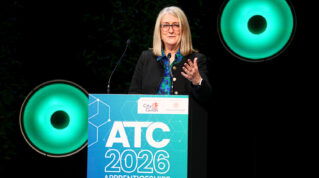This week, the prime minister has set out his ambition that all young people should study maths to 18. Rishi Sunak’s announcement has generally been poorly received. People have pointed out that this is going to be very hard to achieve with shortages of maths teachers across all phases.
For FE and post-16 leaders and teachers, there will likely be a sense of ‘groundhog day’ – another education policy announcement with big implications for FE without funding, a plan, or consideration of the implications, let alone meaningful consultation.
It is also another ‘policy first, evidence later’ initiative. In 2014, GCSE maths resits were effectively made compulsory. Like Sunak’s new policy, the resit idea was partly informed by comparisons with other countries about study of maths post-16. Sunak is right to point out that in many other countries studying maths to 18 is usual. But the way this happens, and the type of mathematics studied are different to our curriculum.
Like the current proposal, the GCSE resit policy allowed the government to make claims about commitment to improving outcomes, but was underfunded. Without adequate resources, individual colleges and organisations like the Education Training Foundation had to do their best to fill the gap in terms of teacher supply and professional development.
Resits mean students take the same exam on the same material again and again – and that’s over 135,000 students a year taking a qualification they won’t pass. A waste of their time and of colleges’ precious resources. Compulsory GCSE resits is a policy failure with barely a quarter achieving the expected standard by 18 – and not much up on the numbers before 2014. This is the result of a badly thought-through policy, made in a rush and with its eye on how it would play to supporters rather than putting young people at the centre.
It’s not a surprise that Sunak’s announcement was received with scepticism
We’re all familiar enough with policies designed this way and that go on not to flourish. Indeed, this isn’t even the only post-16 maths policy to do so. Take core maths, which offers a level 3 qualification in applications of mathematics. Sadly, core maths numbers have remained small, with research identifying the current post-16 funding arrangements as a key barrier to take-up.
So, it’s not a surprise that Sunak’s announcement was received with scepticism by providers. Some have even argued that it is not a serious proposal anyway, but a cynical political distraction from the funding crisis education is facing and our wider social and economic problems.
They might be right, but it does open up a chance to rethink post-16 level 2 maths teaching. A great starting point for discussion is the Royal Society’s work on level 2 qualifications. More broadly, a policy review we undertook as part of the Royal Society’s ‘Mathematical Futures’ programme, including looking at policy internationally, suggests the need for a more fundamental reform of our mathematics curriculum and qualifications.
So, what should the FE sector do in response to Sunak’s proposal?
First, make it clear that it must be fully funded. Doing so will require addressing the inequality in funding for studying level 2 maths between 11- to 16-year-olds and over-16s, incentivising alternative level 3 qualifications like core maths, and significant investment in teacher education and professional development.
Second, ask for a realistic time scale. This announcement looks like a short-term gimmick with the next election in mind. However, it could look different as a twenty- or thirty-year policy goal.
Third, make the case that the key to increasing participation in maths post-16 is to refresh curriculum content as Smith proposed five years ago.
Going beyond this, fourth, make the argument that the school maths curriculum also needs reform, rather than expecting post-16 settings to forever put right education policy failures.
In truth, our maths curriculum is stuck in the 19th Century. Sunak says that currently we are letting children down because we are not equipping them with the data skills needed for work. If we want to really address that then the age of the pupils studying maths matters much less than ensuring the subject reflects the age we live in.
















Your thoughts